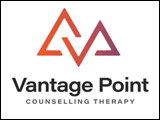The first of five Rapid Access to Addictions Medicine (RAAM) clinics is now open at Winnipeg’s Crisis Response Centre, offering front-line help for Manitobans suffering from addictions.
“RAAM clinics help patients more easily navigate the health system, moving them between addiction medicine specialists, primary care providers and community supports,” said Health, Seniors and Active Living Minister Cameron Friesen. “The opening of these clinics is an important step toward addressing long wait times for Manitobans seeking treatment for addictions or substance-related concerns including opioids, methamphetamine and alcohol.”
The first RAAM clinic, located near the Health Sciences Centre (HSC) Winnipeg campus at 817 Bannatyne Ave., opened on Aug. 31. The clinic provides assessment, counselling, the prescribing of appropriate medication, and connections for patients to community treatment programs and primary care physicians. No appointments are necessary.
Modelled after a successful program in Ontario, the clinics are typically staffed by an addictions physician and a combination of clinicians, counsellors and outreach workers.
“RAAM clinics quickly connect patients to an addictions clinician for assessment, connection to services and treatment from harm reduction to medication-assisted treatment to abstinence, based on the patient’s goals,” said Dr. Erin Knight, medical director at HSC Winnipeg’s addictions unit. “In addition to initial assessments and treatment recommendations, RAAM clinics can provide a low-barrier opportunity for ongoing engagement in care to people who use alcohol or drugs, reducing some of the pressure on emergency departments and crisis services.”
A second Winnipeg location is slated to open Sept. 13 at 146 Magnus Ave., within the Addictions Foundation of Manitoba’s River Point Centre. No appointments are necessary at either location, but patients will only be seen during regularly scheduled hours. The Bannatyne location will be open Tuesday, Wednesday and Friday, while the Magnus Avenue location will be open Monday and Thursday.
Christine Dobbs, a member of Moms Stop the Harm, said the establishment of these clinics will be another avenue for Manitobans seeking help for their addictions. Her son, Adam G. Watson, died of a fentanyl overdose in 2016 following a long struggle with drug addiction.
“It is critically important the health-care system provides ready access to appropriate treatment for people seeking help with their addictions,” Dobbs said. “With the opening of RAAM clinics, the Manitoba government is taking the necessary steps toward providing improved access to health care for those suffering from addiction as part of a continuum of service.”
In addition to working with patients, RAAM clinical teams will provide support to primary care providers including the mentoring, reassessment and referral of patients. Clinical teams will collaborate with regulatory bodies to ensure appropriate education, tools and ongoing support are provided to health-care professionals.
“These clinics are an important step to the bigger picture of addressing addictions in Manitoba,” said Ben Fry, executive director, Addictions Foundation of Manitoba. “They can help provide evidence-based addictions care and link the individual to the most appropriate services to meet their needs in a more timely fashion. Education, mentoring and building capacity are part of this model of care.”
Manitoba Health, Seniors and Active Living provided $1.237 million for the creation of the clinics. The clinics were highlighted as a successful model during extensive public and stakeholder consultations through the development of the Virgo report. Released in May, the report outlined a mental health and addictions strategy for Manitoba. A plan for implementing other recommendations outlined in the report will be announced later this fall, the minister said.
Additional locations in Brandon, Thompson and Selkirk are expected to open within the next two months, Friesen added.



